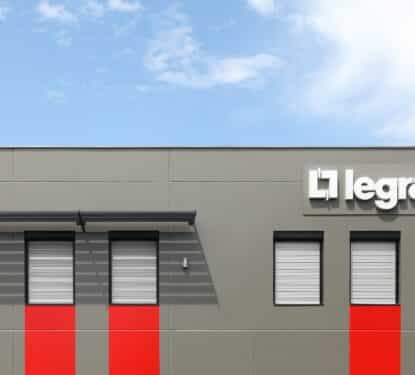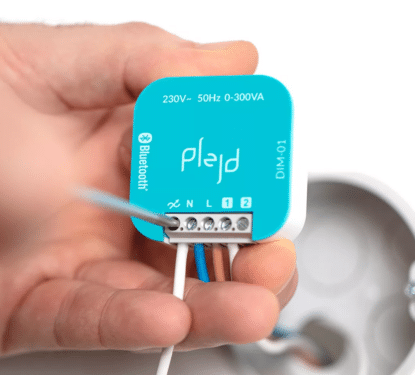The alternative IPO trend continues as German firm EnOcean announces its intention to implement a reverse merger with a SPAC to take them public early next year. Special purpose acquisition companies (SPACs) have proved a popular route for companies to list on the stock market without the rigmarole of a traditional IPO process. However, more often than not, smart buildings companies using these reverse mergers have either failed to complete their proposed deals or struggled since completing it.
“The smart buildings market might not be ready for SPAC success. Whether it is because of the type of investors and business plans, or just the growth rate and maturity of the market, there seems to be a pattern forming for smart building SPACs. The SPAC route to IPO may also be attracting the smart building industry’s most ambitious and impatient companies, many of those companies might not be ready for the challenges of being publicly listed,” we wrote in an article on the failed SPAC for German smart thermostat provider, tado, last month. “Whatever the reason for the poor record of smart building SPACs, the few success stories and the lure of a shortcut to that success could lead to more companies into these reverse-mergers in the coming years.”
Just like tado & Brivo, and many other firms who have tried and struggled with their SPAC process, energy harvesting specialists EnOcean looks well positioned to become a successful publicly listed company. The firm is a pioneer of energy-efficient IoT devices for commercial buildings and smart spaces. It maintains extensive OEM partnerships with over 300 customers and is a founding member of EnOcean Alliance, a non-profit international association of companies that promotes interoperable eco-systems for smart homes, smart buildings and smart spaces with over 300 members.
As a result of a 2020 partnership with Aruba Networks, EnOcean has recently developed a cloud solution called IoTC, which represents EnOcean devices on the cloud by utilizing the existing infrastructure of Aruba’s access points. This should enable the rollout of IoT devices for commercial buildings without the need of creating any new infrastructure, including additional gateways or access points. This technology allows building managers to use common Wi-Fi access points as a base station and the carrier of the Internet protocol for all the data.
“To simplify the connection of wireless IoT devices, Aruba has transformed its access points into full-fledged IoT platforms. The collaboration between Aruba, EnOcean and the EnOcean Alliance leverages this capability and makes it simpler than ever to achieve hyper-aware smart facilities,” reads a partner solution overview from Aruba. “New IoT use cases can be easily handled without the need to rip-and-replace edge infrastructure, deploy sensor wiring, or dispose of batteries. And the solution is compatible with a wide suite of compatible applications, including Microsoft Azure IoT.”

Last month, EnOcean announced the acquisition of the assets of Renesas' edge computing solutions business, which includes much of what remains of the original IoT pioneer, Echelon. Their combined solution, including servers and IoT Access Protocol (IAP) software, enables customers to leverage existing data that is already being generated in their buildings, machines, or other devices for a wide range of applications. The solution enables understanding, control, interaction, and optimisation of buildings and devices. Insights gained from sensor data can be applied directly to drive actions to improve efficiency. The deal with Renesas includes the transition of personnel as well as hardware and software products and was closed on the first day of October 2022.
“EnOcean has always been very keen on delivering innovative and sustainable solutions that have a real benefit for companies by creating energy-efficient, flexible, and overall better buildings. This acquisition brings us, our partners, and our customers one step closer to a carbon-neutral future,” said EnOcean CEO Raoul Wijgergangs after the announcement.
EnOcean intends to pursue an IPO by a business combination with dedicated SPAC, Parabellum Acquisition Corp. The deal values EnOcean at an equity value of $120 million, and the combined company will receive approximately $146.5 million USD in gross proceeds from Parabellum’s trust account, assuming no redemptions by Parabellum’s public stockholders. An additional $40 million in financing will be raised prior to the closing of the deal and following the closing, the combined company will continue to operate the business of EnOcean from its offices in Oberhaching, Germany.
“When we started our journey at Parabellum, we indicated to our investors that our ideal target company would be one that is focused on the accelerated pace of IoT transformation across several key verticals, has proprietary technologies, has an excellent management team, has a defensible business model, and, more importantly, a proven track record in enabling smart, IoT-enabled spaces,” said Narbeh Derhacobian, CEO of Parabellum Acquisition Corporation. “We believe EnOcean meets all the criteria that we set out back in September of 2021. Over the last several quarters, we have come to understand and appreciate the vision of the transformation that Raoul and his management team have set forth. We believe EnOcean is ready to benefit from a stronger balance sheet and execute on their vision of growth as a public company.”
The transaction has been approved by the shareholders’ committee of EnOcean and the board of directors of Parabellum and is currently expected to close in the first half of 2023, subject to regulatory and stockholder approvals, and other customary closing conditions. Just like tado, Gorilla Technology, View, Latch, Brivo, and many other firms who have taken the SPAC route, everything looks set up for success, but because all those companies have struggled in one way or another, concerns will remain about the continued SPAC trend in the smart buildings market.



